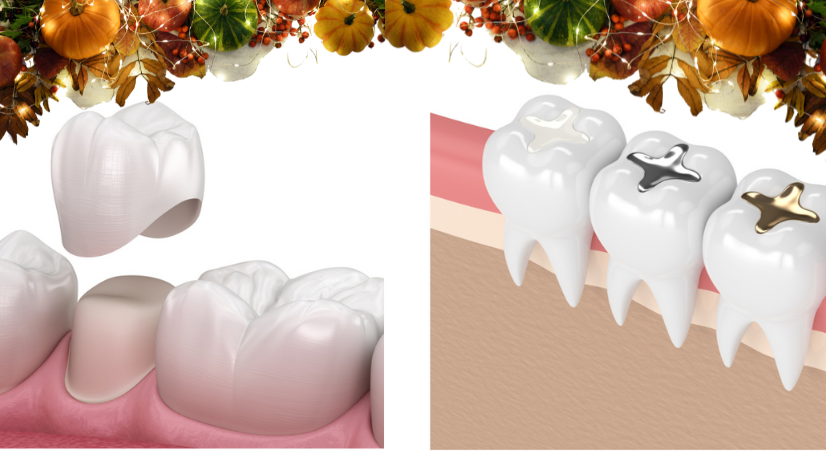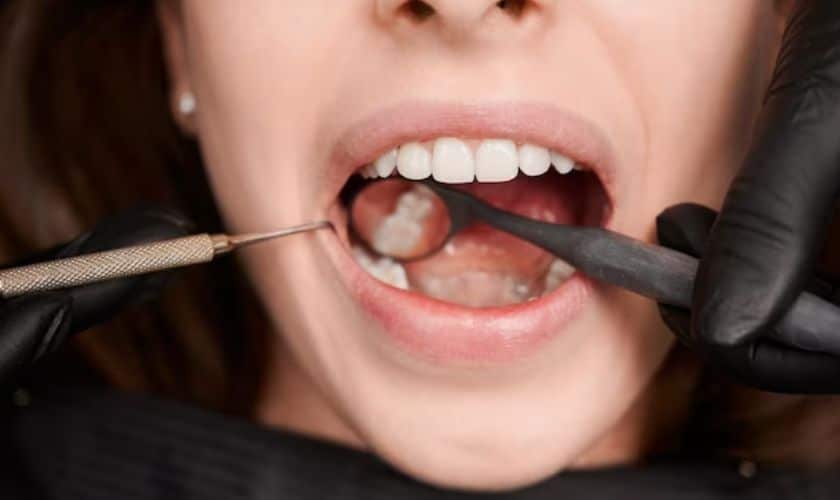
Maintaining good oral health is essential for a confident smile and overall well-being. Still, tooth fillings are crucial in restoring portions affected by decay, cracks, or fractures.
Not everyone requires dental fillings, as the need for this treatment depends on several factors. Understanding who is a good candidate for tooth-colored fillings can help individuals make informed decisions about their oral health.
This blog will explore several aspects of tooth fillings, including eligibility for this dental procedure. You can also review some frequently asked questions and answers to clarify your doubts regarding the filling procedure.
So let’s dive in deep and discover if they are the right solution for you.
What are Dental Fillings?
Fillings are dental restorations used to treat tooth decay and minor damage. They are commonly made from composite resin, amalgam, or porcelain. The dentist begins the filling procedure by removing the decayed or damaged part of the tooth. After cleaning the area, your dental professional carefully applies the filling material, shaping it to match the natural contours of the tooth.
Once the material is hardened using a special light or chemical process, it bonds strongly with the tooth structure. Furthermore, the filling is polished to provide a smooth and natural appearance. Fortunately, dental fillings can withstand normal biting and chewing forces, effectively restoring the tooth’s functionality.
Characteristics of an Ideal Candidate for Dental Fillings
While dental fillings are common dental procedures, here are some conditions when your dentist might consider tooth fillings.
- Early-Stage Tooth Decay
An ideal candidate for dental fillings typically has early-stage decay. Fillings are most effective when the decay spreads only to the tooth’s outer layers. Besides, early detection allows for prompt treatment and prevents the decay from progressing further.
- Sufficient Tooth Structure
For dental fillings to be effective, there needs to be enough healthy tooth structure remaining after the removal of decay or damage. The dentist will assess the extent of the damage and determine if a filling can adequately restore the tooth.
- Good Overall Oral Health
Candidates with good oral health, including minimal gum disease and healthy surrounding teeth, are more suitable for teeth fillings. Moreover, oral hygiene habits, such as regular brushing, flossing, and dental check-ups, improve oral health.
- Location of the Affected Tooth
The tooth’s location in the mouth also plays a role in determining candidacy for fillings. For example, teeth in the back of the mouth may require more robust filling materials due to the increased chewing forces they experience. Hence, your dentist will consider the location and function of the tooth when deciding on the appropriate filling material.
- Commitment to Oral Care
Candidates for enamel fillings should have a commitment to maintaining good oral care practices. This includes regular brushing, flossing, and attending dental check-ups. Therefore, taking proactive steps to prevent further decay or damage is essential for long-term oral health.
- Communication with the Dentist
Effective communication with the dentist is crucial. Candidates should be able to discuss their concerns, ask questions, and follow the dentist’s recommendations. A collaborative relationship between the candidate and the dentist ensures the best treatment outcomes from filling procedures.
Tooth fillings are a vital treatment option for individuals with tooth decay or minor damage. A good candidate for dental fillings typically has the characteristics mentioned here. By opting for enamel fillings, individuals can restore the functionality of their teeth, prevent further decay, and maintain a confident smile. Regular check-ups and early detection of dental issues are crucial in determining the need for fillings.
Consult your dentist today to evaluate if fillings are the right choice to preserve oral health!
FAQs on Dental Fillings
Can dental fillings be noticeable or affect the appearance of my smile?
No, these are not noticeable. Fillings can be color-matched to your natural tooth shade, ensuring a seamless blend with your smile.
How long do tooth fillings last?
The lifespan of a dental filling depends on various factors, including the material used and oral hygiene practices. On average, tooth fillings can last 5-15 years or longer with proper care.
Are dental fillings painful?
Dentists use local anesthesia to numb the area during the filling procedure, ensuring a painless experience. After the procedure, some sensitivity or discomfort may occur, but it typically subsides within a few days.


